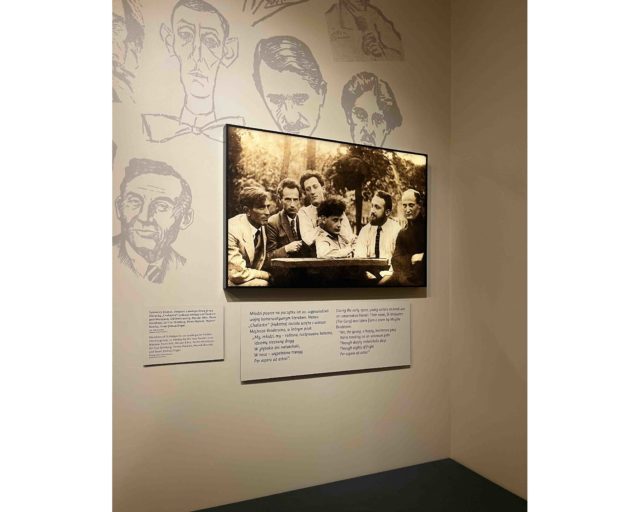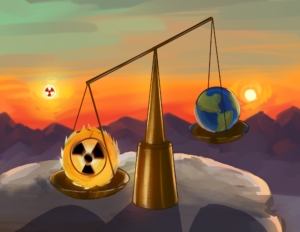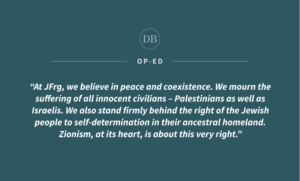This post was updated Feb. 4 at 8:29 p.m.
The first thing we talked about when we got settled in Warsaw was the weather.
Defaulting to the ordinary felt easier than internalizing the significance of where we were. Ninety years ago, my mom’s mother was born here. Eighty-five years ago, she fled Poland, much of her extended family murdered by the Nazi Party.
When my mom and her siblings applied for Polish citizenship right before COVID-19 began, it felt like a transactional decision – they knew the privileges a European Union passport could afford them and their children. Their first-generation status meant it was a simple process.
My documents didn’t arrive in the mail until four years later. Having barely finished my freshman year of college, my to-dos did not include planning an international trip, so the arrival of the passport meant little more than a new fun fact to add to my icebreaker introductions.
It was not that I took getting Polish citizenship for granted. Rather, I failed to understand its significance. How could a document tie me to a place I’d never been – a country where my ancestors barely survived?
My mom introduced the idea of a trip to Poland shortly after we officially gained our citizenship. She had a laundry list of reasons why it was a good idea: The exchange rate was good, the weather mild and we’d whizz through the airport with EU passports.
The restaurant we decided on for that first night had brick walls lined with black-and-white photographs and a live pianist playing for a dwindling number of customers. Flipping through the menu, my mom and I laughed, acknowledging that perhaps her mother hadn’t made up all her recipes after all.
I felt a genuine sense of nostalgia in this place thousands of miles from where I called home. A familiarity that was all written in a language I could not read but that I somehow understood.
Telling friends that I was going to Poland felt like an exercise in teaching history. People only knew about the ancient kingdom, World War II or the Soviet occupation – all are snippets of Poland’s history, but none represent the full story.
What complicated the situation even more was explaining that I have Polish citizenship, but I am not ethnically Polish. The natural question is one I got used to hearing: “What are you then?”
Judaism is an ethnoreligion, meaning that even secular Jews belong to a shared ethnicity. Jews whose ancestors come from Poland have more genetic commonalities with Iraqi Jews, for example, than they would ethnic Poles.
The concept can be somewhat confusing for some Americans, but it is something that I find many Europeans distinctly understand.
“In Poland, you would not really be considered Polish since you are Jewish,” I remember a teacher of mine saying.
Never before had my notions of identity and its fluidity been so tested.
On our second day in Warsaw, we made our way to the POLIN Museum of the History of Polish Jews. We walked for 30 minutes past sculptures of Polish war heroes and a range of religious cemeteries to get there.
The museum detailed a millennium of Jewish history: artifacts from thriving communities, intricate replica synagogues and Yiddish newspapers and songs. It was just over two centuries ago that Poland was celebrated as a “Paradisus Iudaeorum,” or Jewish Paradise.
The penultimate exhibit detailed the Holocaust. According to Yad Vashem, the World Holocaust Remembrance Center, Nazi forces murdered 90% of all Polish Jews between 1939 and 1945.
As I emerged from learning about this tragedy into the literal light of day, I saw a movie projector playing a documentary at a modest volume. Modern Polish Jews told their stories, a continuation of not only 1,000 years of rich history, but also proof that even in places built over the graves of their ancestors, people found ways to create lives, not just monuments.
They discussed the difficulty of existing in the graveyard of their ancestors, of being joyous people in a country that imagines them as ghosts. But it was when they talked about the mundane – their jobs, dreams and the weather – that I was most moved.
Polish citizenship felt like an abstract legal status until I stood in a place that forced me to wrestle with its complexity.
For families who faced exile, returning is never simple. It’s an act of reclaiming, of mourning and of celebration.





Comments are closed.